What Age Can Puppies Hike : And Why It Matters
Many dog lovers like me think when it’s the right time to take their beloved puppies on a hike. They adore their cute companions and want to enjoy the great outdoors together.
It’s a fantastic idea to keep your puppy happy and healthy. However, a common concern is their age. And I have talked in multiple blogs that I also take my 4 legs friend with me on hiking.
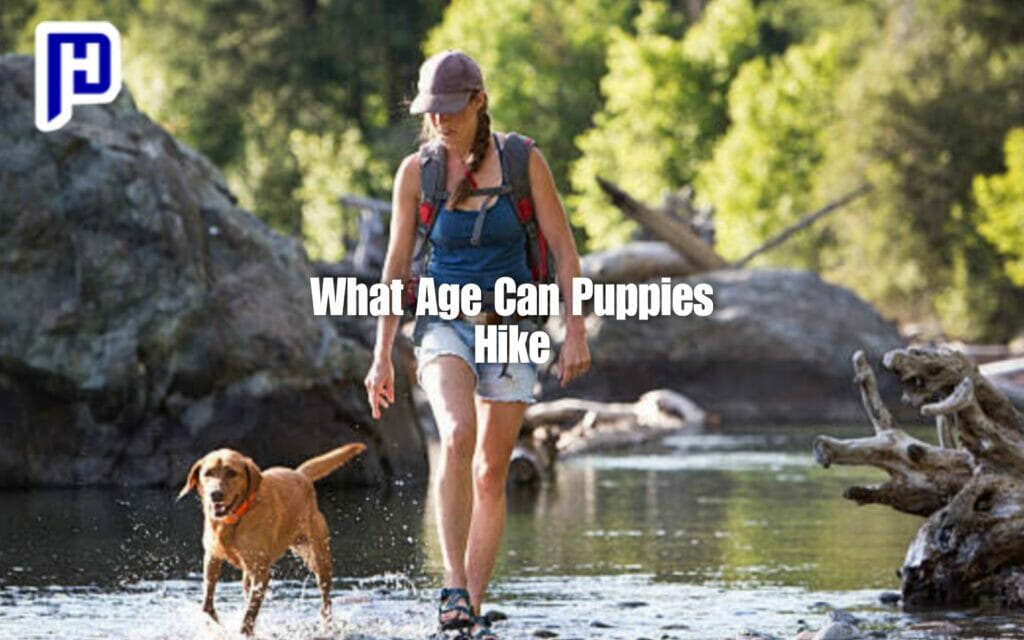
But people also ask, ‘what age can puppies hike‘ so we can take them on a hiking?’ It’s a question that make me satisfied because it shows that pet owners care about their puppy’s well-being.
The ideal age for your puppy’s first hike depends on their breed, size, and overall health. But most puppies can start short, easy hikes at around six months of age. At this age, normally, they build enough strong muscles and capacity for shorter hikes.
But it is important to consult with your veterinarian first. They can provide you better advice based on your puppy’s specific needs and health.
Why Age Matters
Hiking is a healthy outdoor activity, and it has a lot of benefits. So why age matters in hiking with a puppy. Why it is best to wait until your puppy reaches the atleast half year mark.
Physical Development
Young puppies are still growing and developing, including their bones and muscles. Intense physical activity, like hiking, can put undue stress on their developing bodies, potentially leading to injuries more easily. So that’s why atleast I will not suggest to go on hike with small pup.
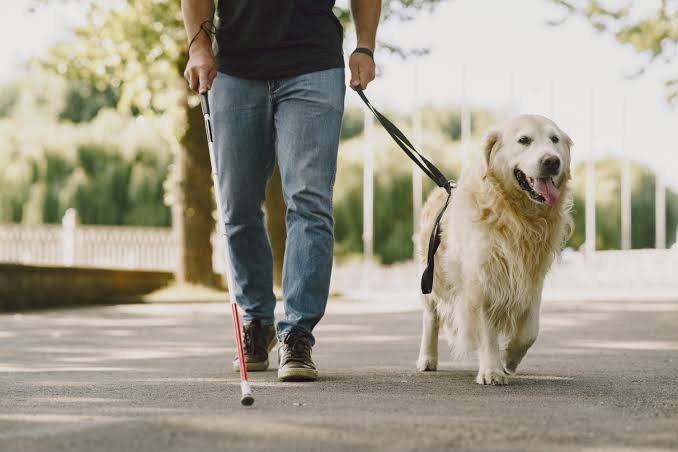
Endurance
Puppies have plenty of energy, but their endurance may not match yours on a long hike. They tire out quickly and may need to be carried for a significant portion of the trip, which is also exhausting for both you and your pup.

Safety
Puppies are naturally curious and may not have the discipline to stay close and avoid potential dangers on the trail.
They might wander off or get into situations that could be risky for their safety.
Socialization
Young puppies are still in the critical phase of socialization. Exposing them to unfamiliar environments, animals, and people on a hike may be overwhelming and counterproductive to their social development.
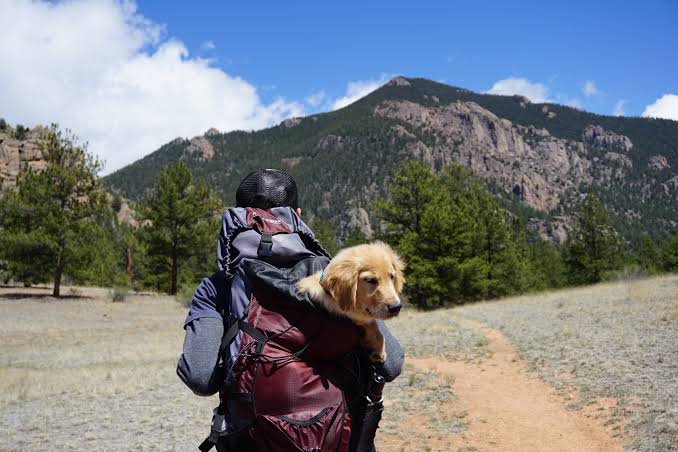
Distraction
Puppies are naturally curious and energetic, which means they’ll want to explore everything around them. This may lead to constant stops and detours as you attend to their needs and ensure their safety.
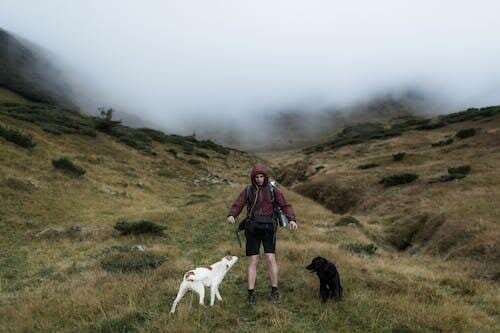
So your hike can turn into a series of puppy-related interruptions, hindering your ability to fully appreciate the natural beauty of the trail.
Lack of Training
If your puppy isn’t adequately trained to respond to your commands, managing them in an outdoor environment becomes quite challenging.
In the wild, distractions are abundant, and your puppy might become easily enticed by wildlife, other hikers, or enticing scents, making them less likely to heed your calls. This can create safety concerns and potentially disrupt the experience for fellow hikers.
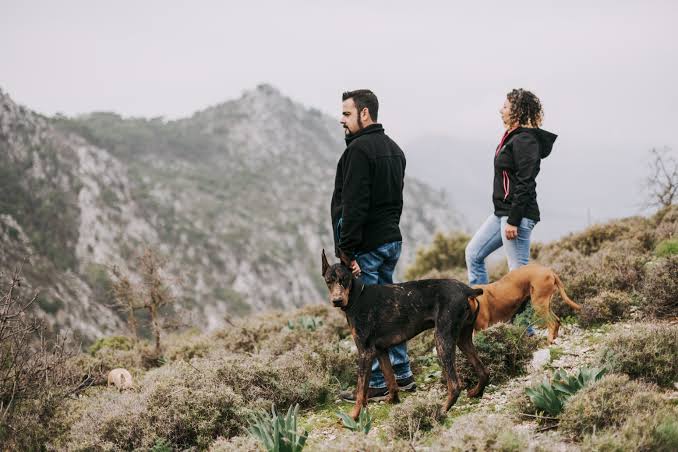
So it is advisable to leave your small puppy at home during a hiking trip. It ensures the fully enjoyment of sights and sounds of nature without any distractions or worries about your pet’s well-being.
Alternatives Of Hiking With Dog
I know you are a puppy’s owner and health and happiness of your puppy is paramount importance to you. So you are looking for ways to ensure your puppy leads a vibrant and fulfilling life. So I have found some suggestions for you and your little friend.
Hide and Seek
One of the simplest yet most enjoyable games you can play with your puppy is hide and seek.
To play, have your puppy sit and stay while you hide in another room or behind furniture. Then, call your pup’s name and watch the excitement as they search for you.
When they find you, shower them with praise and perhaps a treat. This game is not only fun but also enhances your puppy’s recall and obedience skills.
The Local Park Adventure
Your local park is treasure trove of entertainment for your puppy you don’t know. The open spaces, varied scents, and the opportunity to interact with other dogs create a stimulating environment.
Allow your puppy to run freely (if it’s a designated off-leash area) or use a long leash for safety. Engage in games of fetch, let your pup explore to their heart’s content, and encourage socialization with other friendly dogs.
The local park is an ideal setting for burning off excess energy and making new four-legged friends.
Agility and Obstacle Crossing
Agility training and obstacle courses aren’t just for professional dog competitions; they are a great fun for your puppy too.
Set up a simple agility course in your backyard using items like cones, tunnels, and jumps.
Guide your puppy through the course using treats and praise. This activity not only improves your puppy’s physical fitness but also challenges their problem-solving abilities. It’s a fantastic way to keep them mentally sharp and physically agile.
Conclusion
The idea of taking your small puppy hiking is heartwarming I know but it’s important to consider the potential drawbacks and challenges it sometimes present. So don’t take your puppy along with you hike until they become fully trained for trail.


